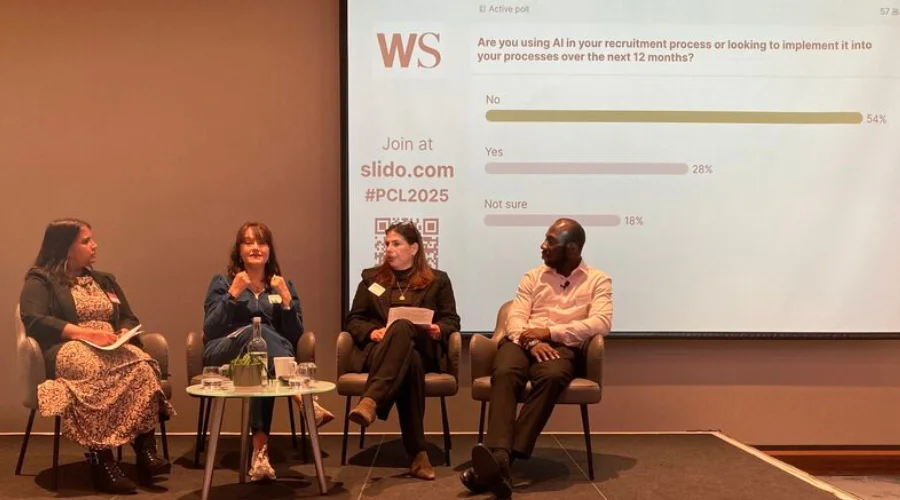
Quick CV Dropoff
Want to hear about the latest non-profit and public sector opportunities as soon as they become available? Upload your CV below and a member of our team will be in touch.

I know from talking to Chairs across the sector that many are taking time to review how their Board has performed during the Covid-19 pandemic.
Chairs need to assess whether the current make-up of the Board is fit for purpose for the organisation’s new position, and many are thinking about recruiting new Trustees to bring new skills and experience to the team.
For example, digital skills might not have been a priority previously but with the current climate may have become a priority if most services are now delivered online. Perhaps HR or fundraising skills weren’t reflected on the Board previously and given all the recent changes, these might now be key areas to have at Board level.
Whatever your situation, it’s important to regularly evaluate your Board to ensure your Trustees can deal with various challenges but also to make sure you are succession planning, especially for roles such as the Chair, Vice-Chair and Treasurer.
The most efficient boards not only have a wide range of skills but also different qualities, approaches and life experiences to ensure you are resolving various opportunities and challenges in the most effective way (a topic I covered in a recent blog on cognitive diversity). Ensuring you are running an open recruitment process (not only relying on your own networks and word of mouth) will result in a more diverse pool of candidates, which will bring more creative thinking, better decision-making and ultimately a more effective board.
Where to start?
From the very beginning, it’s important to decide who will be involved in the recruitment of Trustees and to ensure enough time is put aside for the recruitment process. Carry out a skills gap audit(more on this below) and start thinking about the selection process and dates that would work for the recruitment panel.
You will need to assess what skills and experience are lacking on the Board or be aware of when existing Trustee’s terms will end so you can start planning who might replace them in the future. It’s also important to ask yourself if the requirements are realistic and really essential for the role or simply a nice to have. You might want to look at existing resources around Trustee skills audit (including this example from the NCVO) which will guide you through the process.
Once you know what you will be looking for, it’s important to write a strong advert that will entice candidates and that is reflective of the role. You should include a paragraph that sells the organisation and opportunity as well as highlighting what potential Trustees will get in return for contributing their time (refer to this blog). After presenting the organisation and explaining what you do and how you do it, you will need to clearly outline the skills and experience you are looking for. It’s important to get the tone right and think of your audience, what sort of information would they likely want to know.
It’s also crucial to add a realistic time commitment for the role and to outline when the Board meetings are held. Consider:
Ensure that the advert leads to a call of action, if they want to apply, how do they get more information? Is there someone they can have an informal discussion with (the Chair or CEO)? You might even invite them to a meet and greet with other Trustees which can be a great opportunity to engage with them, as these are people who are keen to support your charity, so don’t take them for granted!
When thinking of advertising, think of where this person you are looking for might be, what are they reading? Which websites are they viewing? Where do they spend their time? Which memberships or professional associations might they be part of? You want to cast the net as broadly as possible so you reach a wide audience, and not only those who were actively looking for a Trustee role. Getting on Board have highlighted several options to consider. We normally recommend advertising for four to six weeks to ensure you are reaching as many people as possible.
You will need a compelling job description, including a clear person specification that is precise enough for candidates who aren’t suitable to select themselves out of the process. This will be the criteria you will use when assessing candidates so ensure that this is measurable and realistic. For example, does this person really need an MBA or is this only desirable? Depending on the size of the organisation, do you really need a qualified accountant for the Finance Trustee? Is it essential that they have sat on a Board previously? With a good induction process, perhaps they could get to grips with the role quite quickly. You could also consider the strategic roles they had, where they might have sat on a committee or worked alongside a Board of Trustees instead of disregarding applicants with no previous board experience.
Selection
You need to have given this some clear thought as to what format the selection process will look like. Remember that although Trustee positions are extremely important roles, this is a voluntary opportunity so making the process too onerous might put candidates off. We would normally suggest one or two interviews, perhaps a more formal stage followed by a coffee with the Chair or a chat with Trustees first and then a more formal stage. In addition to the format, you will need to think who will be interviewing (normally, you will have set this out from the beginning and established the recruitment panel). Think of others you might want to include, whether that’s a beneficiary/service-user or an independent consultant who specialises in the field you are recruiting. Ensure that all candidates go through the same process.
Remember that this interview is as much an opportunity for you to get to know the candidates and assess their suitability, but also for you to sell the opportunity as the candidates will also be assessing you and your organisation and deciding whether they would want to contribute their time to your charity.
A few key areas to cover are:
Once you have completed the interview process and hopefully selected a suitable candidate, don’t forgot to gently turn down the other candidates that you interviewed (and others that applied). They will have put a significant amount of time into their application and coming for an interview so it’s important to manage this process properly, as your organisation’s reputation could be impacted if this isn’t carefully managed. It’s also worth thinking if any applicants that weren’t successful might be suitable in another role, perhaps on one of your committees.
If you would like advice on any aspects of the recruitment process for Trustees or if you would like to discuss how TPP can support you with your search, please get in touch with Lisa or Matt on 020 7198 6040 or executive@tpp.co.uk